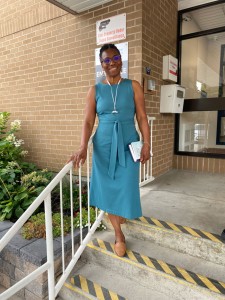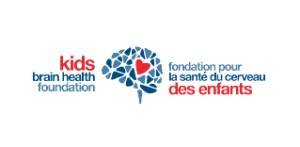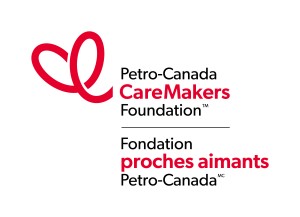Bringing mental health support to Black caregivers through Acceptance and Commitment Training (ACT)
October 1, 2024 | KBH Foundation, News

Kids Brain Health Network and the Kids Brain Health Foundation partner with Petro-Canada CareMakers Foundation to expand services for Black caregivers.
Sheila Phillips understands the joys and challenges of parenting a son with Autism. Her son, Taijai, is 29 years old and a joy to be around. He loves music, singing and playing drums. He has Autism and an intellectual disability, as well as a chromosomal deletion. He enjoys going out, and his day programs are very important to him. When Taijai is struggling, his behaviour sometimes becomes unpredictable. Sheila describes, “It was tearing me apart because I didn’t know what to do. But my faith helped me find a way to get up and smile and take care of him.”
A growing body of research shows that caregivers’ mental health is directly linked to their ability to provide a good quality of life for their children. For caregivers of neurodiverse children, this link is especially significant.
Many caregivers become self-taught advocates to help their children with disabilities thrive, which involves navigating complex social, health care and education systems. These efforts, along with the energy and attention needed to care for their families, can lead people to feel depleted while struggling with their own mental health and wellbeing – often in silence, and without support.
Program for caregivers’ wellbeing
The expansive scope of caregiving is why Sheila was so grateful to find the Acceptance and Commitment Training (ACT) program at Scarborough Centre for Healthy Communities – an evidence-based program shown to improve the well-being of caregivers.
Although Sheila was skeptical at first, she shares: “At the end of that first session, I fell in love with it. I couldn’t wait for the next sessions to happen.” What she found especially refreshing was having people listen to her experiences without judgement, and without rushing to offer advice.
Building on the work of Dr. Kenneth Fung and Dr. Johanna Lake, the collaborative ACT model that Sheila participated in is a partnership between experienced caregivers who have trained as workshop facilitators, along with clinicians. Together, they team up to bring ACT to small groups of caregivers looking for help with their well-being.
“As a psychiatrist, a member of a minoritized community in Canada, and father of a son with ASD, I believe it is crucial to support caregivers and parents of neurodivergent children through our caregiver-clinician co-facilitated ACT model,” says Kenneth. “This is especially important for diverse communities who often face additional psychosocial stressors, such as racism, and are frequently underserved.”
The model is so effective because it combines the clinical expertise of professionals with the lived experience of family members. “What a caregiver brings to the team is different, first-hand knowledge, first-hand experience,” says Sheila, “After five weeks, I knew I wanted to go further with it, and I voiced my interest.”
Before long, Dr. Ullanda Niel and Dr. Dorothee Chopamba, two Black clinicians who are co-facilitators of ACT at Scarborough Centre for Healthy Communities, invited Sheila to participate in the facilitators’ training, and she received funding to complete it.
Challenges caregivers experience
Like Kenneth, Sheila also recognizes that the challenges of caring for children with disabilities are especially prominent in her community as a Black caregiver. She shares that people are conscious of the stigma surrounding disability and mental health struggles in addition to racial discrimination. There is also a noticeable lack of inclusion when it comes to existing supports, and people don’t often see themselves represented in many of the support systems available.
“It’s a challenge to get people to open up and talk about ,” says Sheila, “But also to get them to come into a setting where they can learn how to better take care of themselves and therefore become a better caregiver on the whole. Like me, they were apprehensive when they first came in, but by the end of the first session, they couldn’t wait to come back the next day.” Now there is a waitlist of people hoping to attend more ACT sessions in the fall.
Expanding caregiver services in communities
Kids Brain Health Network and Kids Brain Health Foundation have been instrumental in providing support and funding for the ACT program. Responding to expressions of need among caregivers, the Foundation has partnered with the Petro-Canada CareMakers Foundation, which has provided funding to expand offerings of ACT specifically for Black and Indigenous communities.
“Hearing the testimonies of how much this has helped them and how much they want to take what they learned and begin to use it in their lives… that was rewarding and humbling,” Sheila says. “If it wasn’t for the funders, there would not have been this opportunity, and I want to thank them. ACT for Black caregivers has the potential to reach more people, and in order to do that we need to train more caregivers to be in leadership roles, and to be better equipped to help.”
In May this year, Sheila served as the caregiver-facilitator alongside Ullanda, a family doctor, and Dorothee, a counsellor and psychotherapist, as they offered ACT sessions to members of the Black community with neurodiverse children.

“We are thrilled to collaborate with Sheila, Ullanda, Dorothee, and the amazing Scarborough Centre for Healthy Communities team to bring this model to the Black community,” Kenneth says. “Their generosity, compassion, and expertise are evident as they lead these ACT groups from the heart, creating a meaningful impact that will touch many families and beyond. We are deeply grateful to the Petro-Canada CareMakers Foundation and the Kids Brain Health Foundation for their support of this much-needed initiative.”
As a caregiver and an ACT leader, Sheila encourages other caregivers of neurodiverse children to find a community, whatever that looks like to them. For Sheila, it was her church and her family – including her children and her husband Warren – and then the ACT program. She also emphasizes the importance of being honest with yourself about how you’re doing. “It’s okay if you’re not doing fine. It’s okay if you’re struggling or if you need a break,” says Sheila. “Sometimes it’s possible to realize that you don’t need to ‘figure out’ your child. You just need to embrace, enjoy, and also to stop and take some time for yourself because you are important.”

About Kids Brain Health Foundation – Charitable Number 789819125 RR 0001
The Kids Brain Health Foundation (KBH Foundation) was created in 2016 to support the work of the Kids Brain Health Network (KBHN), a national research network bringing together Canada’s leading researchers to help children with neurodevelopmental disabilities thrive. KBH Foundation supports KBHN transformative research, provides training opportunities for the next generation of researchers, empowers communities with the right tools and information, and translates research findings into early diagnostic, preventative, and therapeutic strategies for neurodiverse children.
Mission of Kids Brain Health Foundation
The Foundation supports the Kids Brain Health Network’s mission: Through catalyzing collective action across sectors, we ensure optimal care and better outcomes for children with neurodevelopmental disabilities and their families.

About the Petro-Canada CareMakers Foundation:
Launched in 2020, the Petro-Canada CareMakers FoundationTM creates awareness about family caregiving in Canada and inspires Canadians to help by raising funds to enable charitable organizations across the country to provide critical programs and resources for family caregivers. CareMakers also convenes and collaborates with others in the caregiving sector to create innovative new programs, resources and tools. CareMakers is a registered Canadian Charity that receives contributions from Suncor, the proud owner of Petro-Canada™, as well as other corporate and individual donors.
More information is available at: https://www.caremakers.ca/about